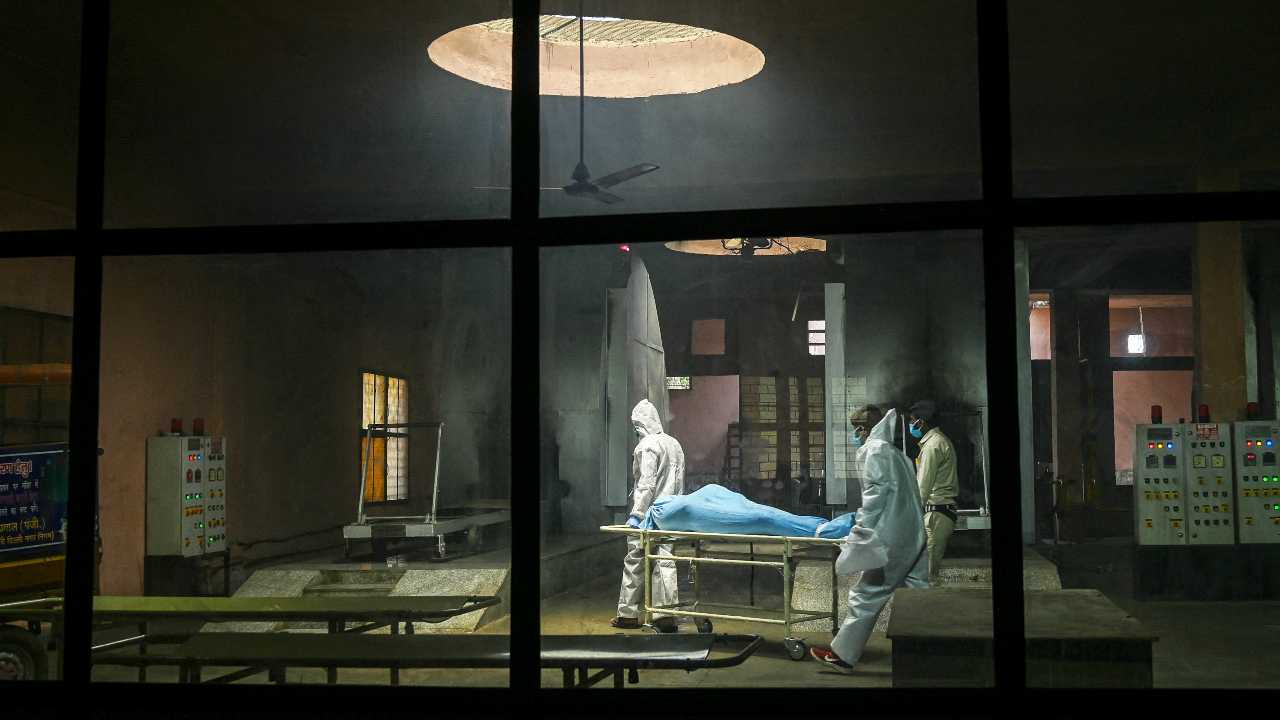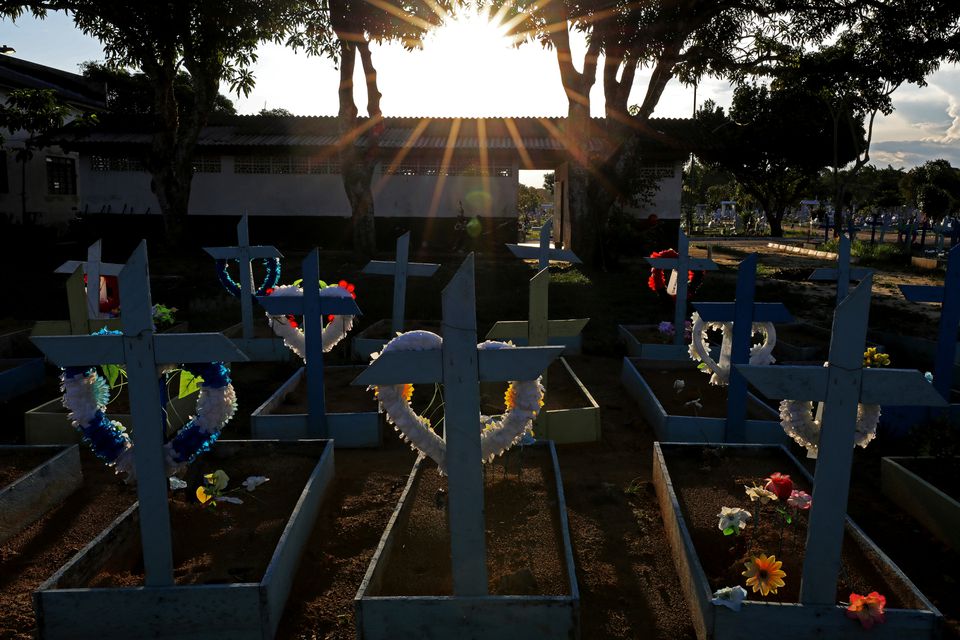
Ambulance staff carry the body of a COVID-19 victim in India. /AFP
Ambulance staff carry the body of a COVID-19 victim in India. /AFP
Editor's note: Bradley Blankenship is a Prague-based American journalist, political analyst and freelance reporter. The article reflects the author's opinions and not necessarily the views of CGTN.
According to data published by Johns Hopkins University on July 7, the global death toll attributed to COVID-19 had risen past 4 million. While some countries, like the United States and those in Europe, are doing far better than before thanks to their privilege in being able to secure enough vaccine doses for their populations, many countries in the Global South are still struggling.
Global North countries are continuing in their unlocking plans pretty much unabated for the most part thanks to their high rate of vaccination, which, even though there are COVID-19 flare-ups across some regions, there is nowhere near the same strain on hospitals. On the upside, it means that current vaccines work and people in these parts of the world are transitioning into living with COVID-19 as an endemic disease; something which experts have long suggested was the eventual outcome of the pandemic.
On the other hand, the global media and public have largely become desensitized to the staggering death toll that is continuing around the world and have lost perspective. It's true that the daily global death figure now is significantly less than the peak in January (7,900 now versus more than 14,700 at that time), but it is still 57 percent higher than the same time last year.
At the same time, the 1 million death mark was reached on September 29, 2020. After that, it took around 115 days to reach 2 million, 88 days to pass 3 million, and 89 days to reach 4 million. It means that there have been far more deaths in 2021 from COVID-19 than there were in 2020, the first year of the pandemic.
This is only according to official numbers. Since deaths are being driven by so-called developing countries, it's likely that they are significantly underreported and the death toll in reality is far higher. Experts believe this is the case even in so-called developed countries like the United States, which alone accounts for 15 percent of the official global death toll.
This still-dire situation around the world in regards to the pandemic highlights the reality of global inequality, namely, the chasm between the Global North and Global South. While the Global North is unlocking, many parts of the Global South remain vaccine deserts untouched by the ray of hope that is inoculation against the virus. However, since the COVID-19 pandemic is by definition a global issue, allowing the Global South to go empty-handed in the final stages of this battle will inevitably backfire.

Graves of whose who passed away due to the coronavirus disease are pictured at the Parque Taruma cemetery in Manaus, Brazil, May 20, 2021. /Reuters
Graves of whose who passed away due to the coronavirus disease are pictured at the Parque Taruma cemetery in Manaus, Brazil, May 20, 2021. /Reuters
As more transmissible and potentially more virulent variants of COVID-19 emerge thanks to a wide variety of vectors resulting from this vaccine inequality, these variants, which could evade an immune response, will certainly find their way into the Global North. By this logic, it is quite literally in these countries' interests to help the Global South push ahead with their vaccine drives.
To be sure, this does not just mean donating vaccines from their own stockpiles as the G7 countries have already pledged. Their 1 billion pledged doses would still be woefully inadequate to meet the demand of the Global South, where most of the world's nearly 8 billion inhabitants reside.
Global North countries should ramp up their vaccine production, halt unilateral sanctions that threaten supply chains in the case of the United States, and end the disinformation campaigns against successful vaccines produced in places like Russia, China or Cuba.
Rich countries are beginning to wind down their fight against COVID-19, which is good for them, but they should not forget that the pandemic is a global issue. They have not only a moral imperative, but also a very real self-interest at stake, in furthering the global vaccine drive, especially in the Global South.
(If you want to contribute and have specific expertise, please contact us at opinions@cgtn.com.)

